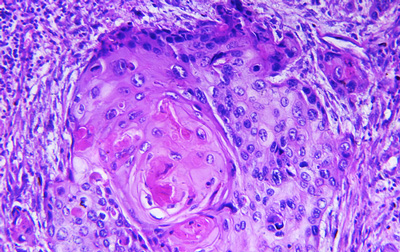PsiOxus initiates study of Keytruda and enadenotucirev in carcinomas
Posted: 22 December 2015 | | No comments yet
Enadenotucirev is an oncolytic virus that has been shown in Phase I clinical trials to reach and selectively infect cancer cells when administered by intravenous infusion…


PsiOxus Therapeutics has initiated a study to assess the safety and efficacy of a therapy combining Merck’s Keytruda (pembrolizumab) and PsiOxus’ lead product, enadenotucirev, to treat patients with carcinomas.


Enadenotucirev is an oncolytic virus that has been shown in Phase I clinical trials to reach and selectively infect cancer cells when administered by intravenous infusion.
The SPICE study aims to assess the ability of enadenotucirev to reverse resistance to checkpoint inhibitors for certain tumour types, including metastatic colorectal cancer. The study will involve several leading clinical centres in the United States and is planned to run until 2017.
Initially, the SPICE study will explore the safety of this combination therapy.
Dr John Beadle, CEO of PsiOxus, commented: “Although checkpoint inhibitors represent a tremendous breakthrough in immunotherapy, the majority of tumours are currently resistant to these agents. More than 90 percent of colorectal tumours, for example, are currently regarded as checkpoint resistant. We aim to show that a combination of enadenotucirev with pembrolizumab can reverse that resistance and significantly open up the market for checkpoint inhibitors and enadenotucirev, for the very important benefit of patients.”
Preclinical studies show enadenotucirev can directly stimulate immune cell activity
PsiOxus says the ability to deliver enadenotucirev systemically via intravenous infusion represents a significant advantage over other oncolytic therapies, such as Imlygic (T-vec), that require intra-tumoural delivery. Furthermore, Phase I clinical trials have shown that the selective infection of tumour cells by enadenotucirev is associated with the infiltration of immune cells (T-cells) into colorectal tumours. Interestingly, preclinical studies using human cells have shown that the virus can directly stimulate immune cell activity and this stimulation has recently been shown to synergise with the activity of checkpoint inhibitors.
The SPICE study thus aims to explore this combination in a range of solid tumour types including colorectal cancer.




